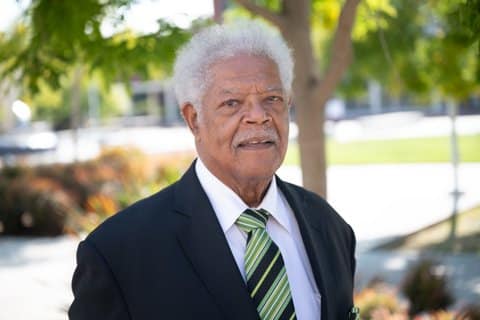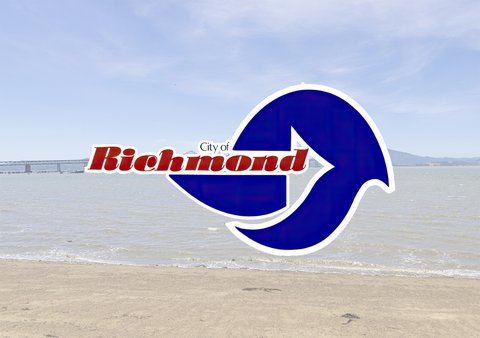18 Dec City Council Proposes Sugar Sweetened Beverage Tax
News Report, Kia Croom
Richmond voters will get a chance to weigh in on a penny-per-ounce soda tax next year. The city council directed staffers to prepare a measure for the November 2012 ballot that would impose a sales tax on “sweetened beverages.”
Councilman Tom Butt said that the city council is not endorsing the tax, but rather deciding whether to put it before voters. Councilman Corky Booze voted against the ballot measure, and Councilman Bates abstained.
Councilman Jeff Ritterman invited Contra Costa Public Health Director Dr. Wendel Brunner to make a presentation on the health effects of sugary beverages ahead of the vote. Ritterman, former Chief of Cardiology at Kaiser Richmond Medical Center says the city’s childhood obesity rates “frightening.”
“We will be sentencing these kids to lives of early illness and early death if we don’t do something,” Ritterman said.
Residents began debating the proposed tax on listservs over the weekend and many spoke on both sides of the issue. Some residents condemned the soda price hike as an “obesity tax,” and noted that in moderation, sugary drinks can be part of a healthy diet. Others argued that the revenue generated by a sales tax could be put toward vital anti-obesity programs.
“People should be able to do as they please. The fact of the matter is drinks that are healthier cost more money. And if sugary drinks are going to cost more money it only makes since to make healthier drinks cost less,” said Celeste Davis, 20 a Richmond resident and mother of three children.
Celeste says she tries to make the best choices for her kids, but finds herself purchasing drinks that she can afford which probably contain more sugar than she would like.
Katherine Daniels, who is a Richmond resident supports the sales tax, provided revenues generated truly benefit anti-obesity initiatives within the city.
“If this tax will help improve the health of children, youth, adults and seniors then I am all for it. Maybe the tax will help people make better dietary choices,” she said.
In a report prepared for the Richmond City Council, The Contra Costa County Public Health division defines a sugar sweetened beverage (SSB) as a non-alcoholic beverage, carbonated or non-carbonated, that contains added caloric sweeteners. Included in this definition are traditional sodas (e.g. Coca-Cola, Sprite) sports drinks (e.g. Gatorade), energy drinks. The reports cites SSBs as the “largest single source of excess, non-nutritional calories in the American diet is from soda and other SSBs and evidence shows a strong correlation between obesity and consumption of SSBs.
The report describes the city of Richmond as a community largely populated by minorities living below the federal poverty level and holding less than a high school diploma. It attributes these social factors and other environmental factors to the poor health outcomes of the community members. The report suggests these populations to be vulnerable to a greater risk of obesity and increased rates of chronic diseases with which obesity is associated.
According to the report, children in the West Contra Costa Unified School District (which includes Richmond) are more likely to be obese than children in other County school districts. Data taken from the 2010 FITNESSGRAM (a physical fitness test for students in California schools) indicates more than 50% of (a sampling of 2,594) students are overweight or obese. Children who are overweight or obese are at a greater risk of becoming obese as adults and suffering the health consequences of a lifetime of obesity.
The 2009 California Health Interview Survey shows the highest consumption of SSB among teens, with 67% of teens estimated to consume one or more SSBs each day (this includes sodas, fruit drinks, sports drinks, energy drinks etc.). The rate was lower among children aged 0-11. However, the rate of consumption was much greater in school-aged children than toddlers and infants. Among adults, the rate of sweetened beverage consumption was estimated at 42% when sweetened coffee and hot tea were included (this includes pre-sweetened coffee and tea as well as and restaurant coffee and tea drinks to which people add sugar). When coffee and hot tea were excluded, the rate was estimated to be 21%.
Sugar sweetened beverages are easily accessible by Richmond residents. The 2009 California Health survey reports 323 retail food outlets in the city of Richmond alone and an additional 260 retail food outlets outside the city limits, yet within a quarter mile of the city limits for a total of 583 retail outlets accessible to Richmond residents. 198 of these food retail outlets are within a quarter mile of a school.
Based on the California Health Interview Survey findings and using population estimates from the 2010 Census, it was estimated that 74% of the city of Richmond population resides within walking distance (1/4 mile) of a retailer or vendor (76,739 of a total population of 103,701).






No Comments